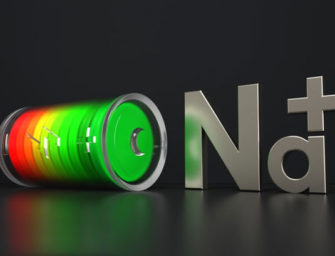Moderna CEO wins 2021 Strategist Award
Moderna CEO Stéphane Bancel wins the 2021 Strategist Award after the company hits nearly 100 billion USD in valuation, while the company aims to prove its mRNA vaccine will do more than fight Covid-19.
Stéphane Bancel given the 2021 strategist award
By betting big on mRNA technology the CEO of Moderna, Stéphane Bancel, has turned the biotech startup into a 100 billion dollar company in just two years. The company is now worth nearly as much as multinational pharmaceutical company Sanofi, and the Marseille-born CEO’s personal net worth has skyrocketed to over $10 billion. Because of this success, Les Echos has awarded him the prestigious 2021 strategist award. Bancel shares this honor with Carlos Tavares, boss of PSA who merged Fiat Chrysler and with Patrick Pouyanne who guided Total through multiple crises, along with Stephane Pallez who privatized and digitized the operator of France’s national lottery games.
Bancel joined Moderna in 2011 without drug development experience
At 44, Bancel was tapped to lead Moderna by a successful biotech venture capitalist in 2011. He was actually invited to several different startups but turned down offers because the scopes of the startups seemed too narrow, but Bancel was drawn to Moderna due to the possibilities provided by protein therapy and mRNA vaccine technology. This was at the time considered highly risky with many pharmaceutical companies trying similar work but ultimately abandoning the ideas due to bad side effects of the treatments. Nonetheless, it drew Bancel in. Although up until this point his background was sales and operations with no experience running drug development programs, he threw himself into it and is even listed as a co-inventor on more than 100 of Moderna’s early patent applications – something unusual for a CEO.
Turning mRNA technology into a product
Synthetic messenger RNA has long held promise. The idea is simple – by custom-making messenger RNA (mRNA), you can direct the body’s own cells to create a piece of the protein that triggers an immune response. In the case of Covid-19, the mRNA in the Moderna vaccine ‘hijacks’ some of the body’s cells to create the coronavirus spike protein, which the immune system then attacks. This sounds complex compared to traditional vaccines, in which inactive viral particles are injected into the body directly, however its promise is that it is fast and relatively cheap to produce in large quantities. That means mRNA vaccines can be deployed to outbreaks or epidemics much faster than traditional vaccines. This is one of the reasons why Sinopharm and Sinovac could not meet the demand for Covid-19 vaccines, especially in the early days where production was yet to increase.
The high-risk, high-reward route of mRNA vaccines
While the potential of mRNA therapies have mobilized billions of dollars of investment, the idea is not new. For decades scientists have worked on the technology but no mRNA vaccine or drug had ever received regulatory approval – mostly due to the nasty side effects. In fact, Katalin Kariko, the Hungarian-born scientist behind the key discovery was demoted in 1995 for failing to receive any funding for her work on mRNA therapies.
Even as the pandemic reached full swing and the US government began ‘Operation Warp-speed,’ mRNA vaccines were only one of the three different technologies granted funding, with Moderna and Pfizer-BioNTech taking the risk on mRNA vaccines.
Proving that mRNA is not a one-trick-pony
The success of mRNA vaccines against Covid-19 has taken Moderna from being a biotech startup to a household name. New variants of Covid-19, like Omicron, will require modified vaccines – something that mRNA technology is uniquely suited for because of how quickly new formulas can be created. While this will keep the company busy, the real trick for Bancel and Moderna will be to maintain their momentum post-pandemic. Not only do they have to prove that mRNA can be effective in other applications, but with mRNA technology back in the spotlight Moderna will probably face increased competition as other pharmaceutical companies turn back to their formerly abandoned mRNA research.
Bancel appears to be aware of this, and the company already has 14 different mRNA candidates in clinical trials. This includes a vaccine for RSV (Respiratory Syncytial Virus) and cancer treatments. Moderna’s initial flu vaccine offering, based on its Covid-19 vaccine technology, has so far been underwhelming to observers however, with only the same efficacy as other, traditional seasonal flu vaccines. Experts have noted however that if their mRNA vaccine can be produced faster and at lower costs than traditional flu vaccines the company will still have an edge with the new technology.
Photos : forbes.com
















There are no comments
Add yours